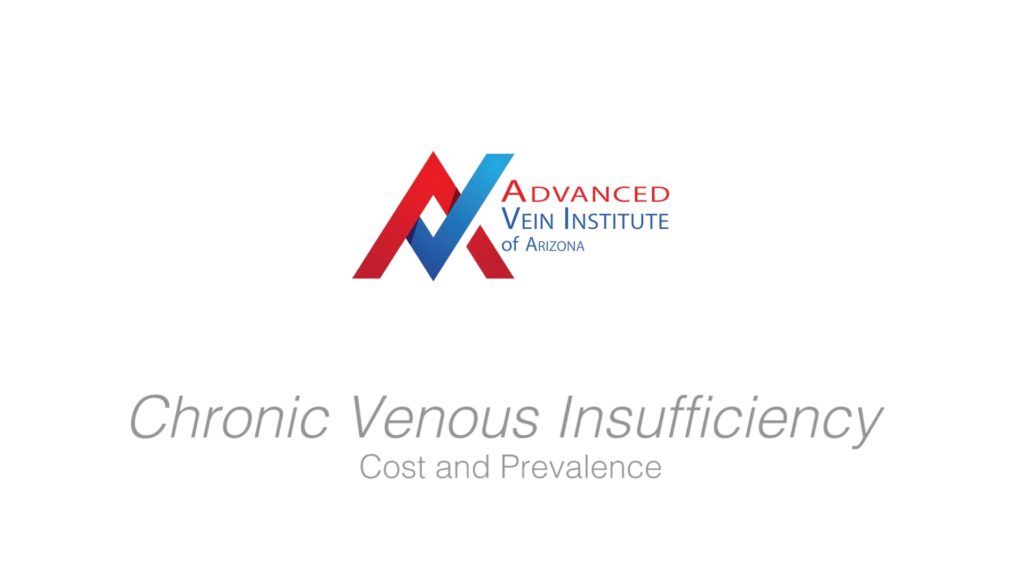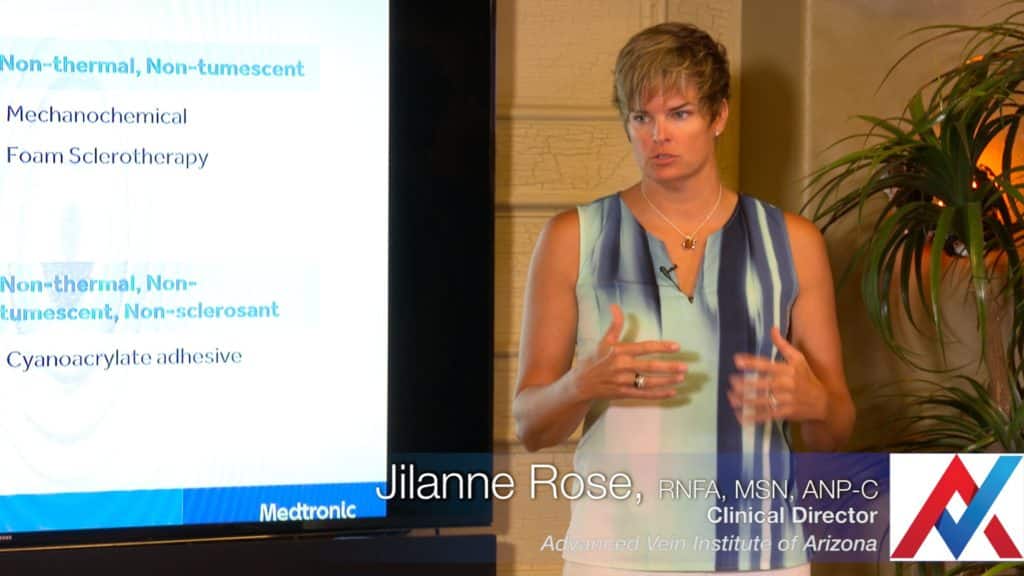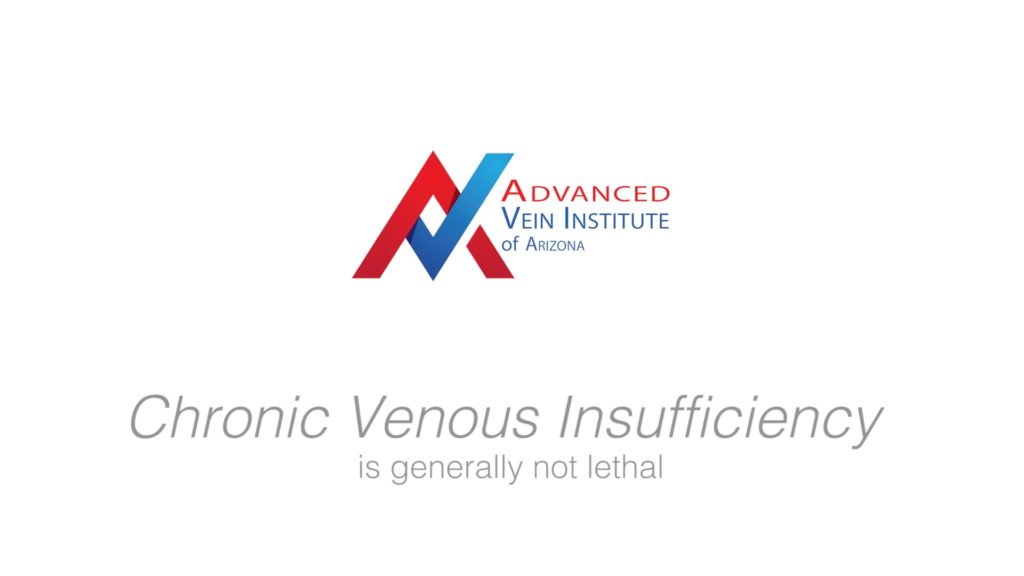Common Symptoms of CVI – Should you be concerned?

The concern about having or developing Chronic Venous Insufficiency (CVI) is a great reason to have your varicose veins fully assessed by a qualified Vein Specialist.
Why should I be concerned about the symptoms of Chronic Veins Insufficiency?
Chronic Venous Insufficiency, also known as Venous Reflux Disease or Venous Stasis, refers to a condition of inadequate blood flow from the legs back to the heart. In healthy veins, blood pressure and muscle movement move blood out of the legs and upwards; one-way valves prevent back-flow of blood between heart beats. When those valves become weak, veins become distended and blood pools in the lower legs. This can lead to Chronic Venous Insufficiency. While CVI is not usually lethal, its symptoms can significantly diminish your quality of life.
What are the most common symptoms of Chronic Venous Insufficiency?
If you experience any of these symptoms, consider getting a full vascular health evaluation from a qualified Vein Specialist to determine what can be done to improve your quality of life.
- Varicose and spider veins
- Swelling of the legs and ankles
- Skin color changes over the legs and ankles
- Sores on the legs (ulcers), especially those that are slow to heal
- Aching legs
- Heavy legs
- Burning, throbbing in the legs
- Muscle cramps
- Leg fatigue
- Bleeding veins
- Itching over veins
- Restless legs
- Leg pain after sitting or standing long periods
Who is at risk of developing the symptoms of Chronic Venous Insufficiency?
There are a number of reasons that venous valves become weaker, and family history tops the list. If other members of your family have CVI, you have a much higher chance of developing this condition. Other factors include:
- Age. Vessel walls get weaker over time.
- Hormonal factors. Hormonal imbalances and fluctuations affect vessel wall integrity.
- Pregnancy. Hormonal fluctuations and the physical pressures of pregnancy are both factors.
- Trauma and other injury to the legs. Scar tissue can also impair blood flow.
- Deep Vein Thrombosis. These are clots that form in the deep venous system and impede blood flow.
There are lifestyle factors, as well, that can increase your chances of developing CVI. Any repeated activity (or inactivity) that impedes or slows blood movement in the body will impair your vascular health, including:
- Standing or sitting for long periods. Gravity can take a toll, and blood moves better when the body is moving.
- Obesity. It takes a lot of physical resources to support increased fat tissue.
- Smoking. Not only does smoking decrease the amount of oxygen that is taken in by the body, its long-term effects include a buildup of plaque and decreased flexibility in the vessel walls.
- Hypertension. High blood pressure can also contribute to a decrease in blood vessel wall flexibility.
- Lack of physical activity. Blood moves better when the body is moving.
Treatment for the symptoms
While there is no cure, there are a number of minimally invasive procedures available that will improve vascular sufficiency, and provide relief from CVI symptoms. Read more about them by clicking on the links.
- Medical Adhesive (Veneseal Closure System)
- Laser Treatment (Endovenous Laser Treatment (EVLT)
- Radio Frequency Ablation (ClosureFast Radiofrequency Procedure)
- Liquid Sclerotherapy and Compression (chemical injection)
A board certified Vein Specialist can provide you with a full vascular exam and Duplex Ultrasound.These tools will measure the blood flow returning to the heart, assess your overall vein health, and allow for the creation of a treatment plan tailored to your specific needs.
Vein disease is incredibly common in the United States. According to some estimates, 50-60 million American men and women have some form of venous disease. Varicose veins are among the most common of these. In fact, varicose veins are so common that it can be easy to forget that they could also be an indication…
Read MoreVein specialists note that many men they treat have more severe vein problems than women because they’ve had them longer and tend to wait until their pain becomes unbearable–or worse–their veins start to bleed. Don’t be one of those guys! When is the last time you went out for beers with the boys and talked…
Read MoreIf you have even heard of vulvar varicosities, chances are it is because you have experienced them. And it is likely you had to work ridiculously hard to uncover any information about the topic. Varicose veins of the vulva and perineum just don’t get a whole lot of press. Commonly quoted estimates state that about…
Read MoreIf you have any questions or concerns about your vascular health, please schedule an appointment with Jilanne Rose at our Tempe, Arizona office. With over 10,000 peripheral vein procedures to her credit, she is the Arizona Vein Specialist who can help you with any vascular concerns you may have. VIDEO TRANSCRIPT The cost of vein insufficiency…
Read More04 CVI The Causes of Vein Insufficiency from Tim C Martin on Vimeo. If you have any questions or concerns about your vascular health, please schedule an appointment with Jilanne Rose at our Phoenix, Arizona office. With over 10,000 peripheral vein procedures to her credit, she is the Arizona Vein Specialist who can help you with…
Read MoreIf you have any questions or concerns about your vascular health, please schedule an appointment with Jilanne Rose at our Phoenix, Arizona office. With over 10,000 peripheral vein procedures to her credit, she is the Arizona Vein Specialist who can help you with any vascular concerns you may have. VIDEO TRANSCRIPT Home Remedies for Varicose Veins…
Read MoreIt’s a common misconception only women suffer from varicose veins, however, it is estimated that somewhere between 15% and 45% of men will develop varicose veins or venous insufficiency at some point in their lives. The exact number is unknown, primarily because a significant number of men do not seek treatment for vein disorders. There…
Read More01 Your Vascular System and Vein Insufficiency from Tim C Martin on Vimeo. If you have any questions or concerns about your vascular health, please schedule an appointment with Jilanne Rose at our Tempe, Arizona office. With over 10,000 peripheral vein procedures to her credit, she is the Arizona Vein Specialist who can help you…
Read More If you have any questions or concerns about your vascular health, please schedule an appointment with Jilanne Rose at our Tempe, Arizona office. With over 10,000 peripheral vein procedures to her credit, she is the Arizona Vein Specialist who can help you with any vascular concerns you may have. VIDEO TRANSCRIPT Important specifics about vein…
Read MoreIf you have any questions or concerns about your vascular health, please schedule an appointment with Jilanne Rose at our Phoenix, Arizona office. Having performed well over 10,000 peripheral vein procedures, she is the Arizona Vein Specialist who can help you with any vascular concerns you may have. VIDEO TRANSCRIPT Anatomy of Veins: Again, we talked…
Read More



